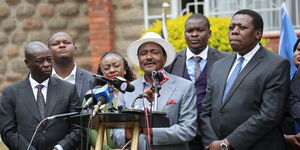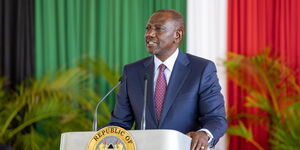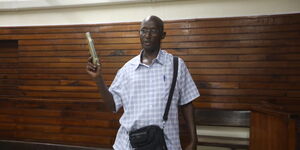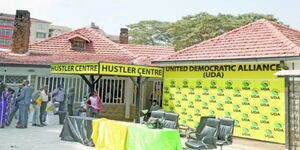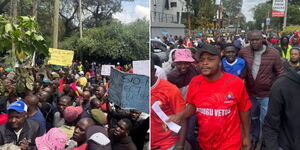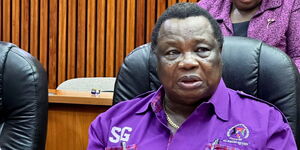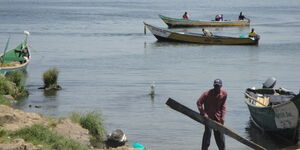President William Ruto’s government has shifted its focus to fuel and export levies to address budgetary shortfalls after public backlash forced the abandonment of proposed taxes on bread, financial transactions, and the controversial motor vehicle levy.
The proposed tax increases, which critics argue could cripple sectors like financial and internet services, transport, manufacturing, and retail, were expected to generate an additional Ksh346.7 billion to finance the Ksh3.9 trillion budget.
With the scrapping of some levies in the Finance Bill, 2024, the government now aims to increase petroleum and export promotion taxes to cover the budgetary gap.
A report on the Bill, tabled in Parliament by the National Assembly Finance and National Planning Committee and chaired by Molo MP Kimani Kuria, outlines new measures aimed at alternative sources of revenue.
Kuria stated, “The changes we are proposing in this Bill will make it not just a revenue-raising Bill but a matter that addresses policy issues to increase productivity and create jobs.”
Among the proposed changes is an increase in the Road Maintenance Levy from Ksh18 to Ksh25. This would result in Super Petrol prices rising from Ksh189.84 to Ksh196.84 per litre, Diesel from Ksh173.10 to Ksh180.10 per litre, and Kerosene from Ksh163.05 to Ksh170.05 per litre in the current price cycle.
The increased levy is intended to bolster the Road Maintenance Levy Fund, which finances the annual repair and maintenance of roads under the administration of the Kenya Roads Board. “To help raise sufficient funds to maintain and repair roads across the country, the committee recommends an increase of the levy pursuant to Section 3 of the Road Maintenance Levy Fund Act,” the committee’s report states.
Despite raising Ksh84.14 billion in the 2022/23 financial year, the performance of the levy in 2023/24 has been adversely affected by high fuel prices and exchange rate depreciation. Kuria noted, “The fall in the collections under the road maintenance levy has continued to affect the repair and maintenance of highways, urban, and rural roads.”
Additionally, the committee has proposed the Export Investment Promotion Levy to counter the decline in exports and the rise in imports, even for locally manufactured goods.
This levy aims to protect local manufacturers from unfair trade practices, boost the competitiveness of Kenya's manufacturing sector, and promote a sustainable and inclusive export sector.
The committee recommends imposing the Export and Investment Promotion Levy on a range of imported goods, including leather articles, footwear, denatured ethyl alcohol, and ceramic sinks.
This move is expected to support local manufacturing and increase the sector's contribution to GDP from the current 7 per cent to 20 per cent by 2027. It is also intended to level the playing field for local manufacturers struggling to compete with cheaper imports.
The National Treasury has projected that the Kenya Revenue Authority (KRA) will collect Ksh2.95 billion in ordinary and Appropriations in Aid (AIA) to finance the budget without resorting to borrowing.
The National Treasury forecasts a shortfall of Ksh514.7 billion, equivalent to 2.9 per cent of the gross domestic product (GDP), according to estimates presented to lawmakers in March. This is lower than earlier projections of 3.9 per cent for the year through June 2025, and 3.3 per cent for the subsequent two periods to mid-2027.
To finance the budget, Ruto aims to borrow Ksh333.8 billion from external sources, and Ksh263.2 billion from the domestic market.


